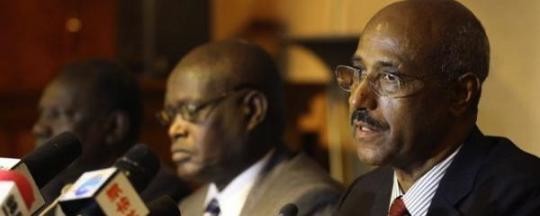Mediators of the East African Inter-Governmental Authority on Development (IGAD) today announced the adjournment of the South Sudanese peace talks for twelve days.
The talks that commenced on 28 April 2014 were the third round of ‘Phase II’ negotiations, Phase I have having been the January talks on a ceasefire and release of political prisoners.
In a press release today, IGAD referred to ‘fruitful deliberation’ at the latest talks, which resulted in a “landmark agreement to end the conflict in South Sudan” signed by President Salva Kiir and SPLM/A-in-Opposition leader Riek Machar on 9 May.
IGAD noted that this deal contains commitment to an immediate cessation of hostilities, a pledge to freeze all armed forces in their current locations, and a pledge to negotiate on a transitional government of national unity.
“The agreement has favorably changed the landscape of the negotiation into a more inclusive, representative and forward looking process,” said the mediators.
According to the same press statement, the parties established two working committees for discussions, one the Security Arrangements and Humanitarian Affairs Committee, and the other the Political Committee.
“These committees have produced working documents on implementation modalities matrix for the Cessation of Hostilities Agreement and the Framework for the Political Negotiations towards a Settlement of the Crisis in South Sudan respectively which is work in progress,” IGAD noted.
Negotiators at the talks, who disclosed to Radio Tamazuj the planned adjournment on Saturday, said that it came after the failure to secure agreement on the ‘working documents’ referenced by IGAD in its press release.
Mohamed Ahmed al-Dabi, a member of the mediation team, explained to Radio Tamazuj, however, that the mediators did not exert pressure on the parties to sign the working documents discussed within the two sub-committees, but that they had urged them to consult with their principles on Sunday.
Government spokesperson Michael Makuei, in a statement to Radio Tamazuj on Saturday, explained that the issue of participation by the released political detainees had still posed an obstacle to the signing of the agreement on political issues.
Earlier it had been reported that there was significant progress on the document on security issues, with some negotiators even expecting it could be signed late last week.




